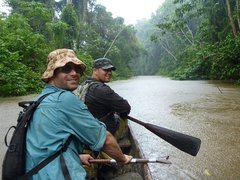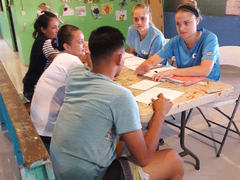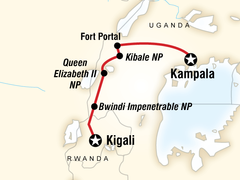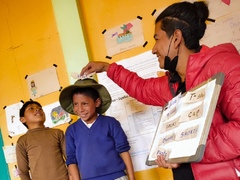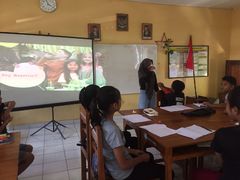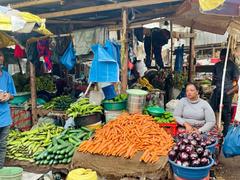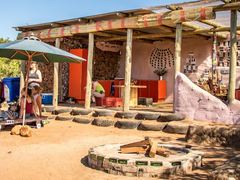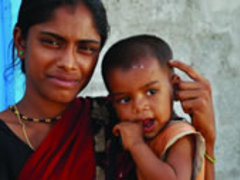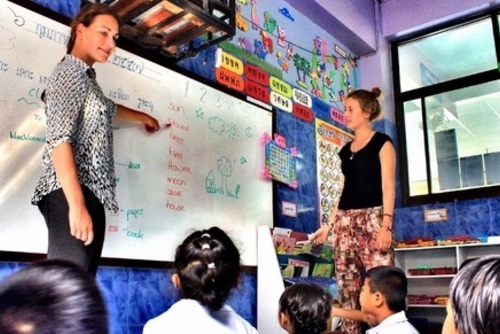Our mission is to empower orphans and vulnerable children, youths and marginalized women in Uganda. It is a fully Non- Governmental Organization (NGO) in 2011 with REG.NO.S.5914/8905 that was established to help Orphans and Vulnerable Children (OVCs), Youth and Marginalized women in areas of Education, Health and Economic Empowerment. It operates in Nansana Town council area and Nabweru sub county Wakiso district.
The main objectives of TFU are;
1. To equip children, youth and marginalized women with vocational knowledge and skills which are needed to promote development.
2. To increase awareness on the general health, well-being and proper nutrition.
3. To nurture well behaved, socially, morally, spiritually and academically up right children who will be involved in a positive change of our societies
4. To advance HIV/AIDS prevention by raising awareness and to increase control of malaria and diarrheal diseases amongst our children, youth and Marginalized women as well as the community at large.
5. Promotion of Child Protection, Rights of Children & Youth Development and Address the Issues related to Abuse and Marginalization of Children, Youth and Women.
The three major sectors of trust future Uganda include;
EDUCATION
These are of two categories; primary education and adult education.
Primary education
Trust Future Uganda has remained engaged in education sector since 2008. The organization has established a primary school in the names of Trust Future Primary school, also registered by the Uganda Ministry of Education and Sports under REG NO. PPP/T/63. We are targeting vulnerable children from 4 to 14 years. Our school counts 210 children including the most vulnerable and orphans. Over 2228 children have been educated since the formation of the organization.
TFU has also formed parents’ education committee (PEC) and school management committees (SMC) to help in the promotion of quality education among our children.
For the sustainability of the school and its effective operations, Trust Future Uganda always uses the strategies such as the true community participation, public private partnerships and
The formation and strengthening/capacity building of PEC & SMC. This school has catered to a certain extent education needs of the children and teachers. Over10 teachers are engaged in teaching to fulfill the educational needs of the primary students.
Adult education.
TFU started the Adult Literacy Project in 2012 aiming at improving the education standard for those who did not have chance of gaining formal education when they were young. As a result, they are unable to read and write even in their local language. We offer adult classes in the evening, three times a week offering English lessons, Luganda and simple business mathematics. This program has helped more than 60 adults especially women. This program has brought a transformed educated and self-reliant community ready to fight poverty and diseases.
EMPOWERMENT
This is divided into two categories. I.e. The women empowerment and youth empowerment sector.
Women empowerment sector/project.
This project has promoted income generating activities targeting women at home (especially women headed households) by bringing them together to initiate sustainable economic projects to support their families. We empower marginalized women by training them in life skills and vocations to create more self-reliance.
Women are industrial and have a strong will to learn new skills. Trust Future helps women to explore and use their talents and skills. We want to introduce projects to train vocational skills such as craft making, candle-making, vegetable growing, kitchen gardening and poultry farming. The aim of such projects would be to promote income generating activities targeting women at home and women-headed households. Trust Future Uganda wants to bring these women together to initiate these sustainable economic projects to support their families.
Through this initiative, since 2012, 48 women have been able to get involved in producing various products such as mats; ladies hand bags, beads, craft shoes, envelopes and paper bags. These products have been instrumental in transforming their lives by providing income for paying school fees, medical fees, providing daily meals and clothing their children.
Youth sector/ project.
The goal of the youth empowerment project is to address psychological and economic problems amongst young people in the locality. For various reasons, a significant number of young people do not finish their education. Such reasons include: Insufficient funds to pay school fees, poverty, HIV and childhood pregnancy. As a result, this often leads to unplanned marriages, drug and alcohol abuse and menial jobs as a source of income for these young people. Through this project, Trust Future Uganda aims to promote sustainable development amongst the youth group, equip them with a set of vocational skills and encourage them to initiate their own income generating activities to continue to build their lives.
Utilizing the existing Trust Future Primary School Building, TFU aim to offer 4 skills based training courses in the Youth Empowerment Project:
- Shoe Making
- Tailoring
- Hairdressing. pending
- Carpentry .pending
- Computer training
- Arts and sports
These evening courses, offer the youth of the locality an opportunity to develop a new skill set to help them grow, seek employment and build a life outside of the poverty cycle. By learning the skills to build a sustainable livelihood, there should be a reduction in early marriages, a reduced dependency on drugs amongst youths and a decrease in the rate of HIV infection amongst the youth of the region.
HEALTH
For several times TFU have been running HIV/AIDS awareness programs as well as a number of Counseling and Testing (HCT) activities in cooperation with organizations like Nurture Africa and KIFAD. After identifying cases, we usually refer them to our partner organizations for care and treatment. Regular follow up is carried out to create hope among our beneficiaries.
Also Community Health Support is taken care of through awareness and sensitization. This involves door to door sensitizations and organizing various village/community meetings focusing on efficient measures in everyday life to promote basic health like boiling of drinking water, proper use of latrines, family planning, proper and consistent use of condoms and faithfulness within relations and how to manage menstrual periods among school going girls, school drop outs and marginalized women.




